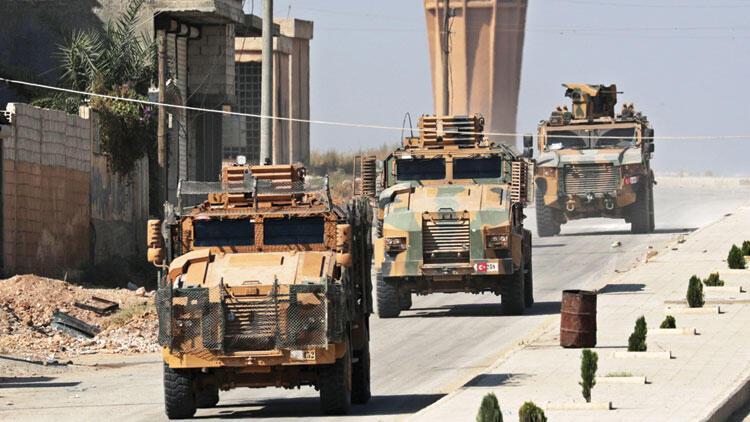CHP questions the current state of Turkish soldiers in Syria
ANKARA

Main opposition Republican People’s Party (CHP) on Jan. 6 inquired about the current state of Turkish soldiers assigned to observation posts in Syria, saying no one knows how the soldiers are doing.
The Syrian regime’s forces on Dec. 23, 2019, surrounded one of 12 Turkish observation posts in the region. After the regime’s capture of Al-Surman town, in the southeast of Idlib, the eighth observation post of Turkish Armed Forces (TSK) in the village was surrounded. Another Turkish observation post in the town of Morek was also surrounded in August, leaving two TSK posts within the regime’s territory.
Speaking after the first Central Executive Board (MYK) meeting of the CHP, the party spokesperson asked about the current state of soldiers who are performing their duties at the observation posts.
“Now, most of these 12 observation posts, where our ‘Mehmetçik’ are located at, have been besieged by the Syrian regime’s forces. In other terms, [observation posts] are being protected by them. No one knows how the soldiers are doing,” Faik Öztrak said at a press conference.
“Mehmetçik” is a widely used Turkish term to affectionately to refer soldiers of the military.
Öztrak also said that there is no information about the living conditions of the soldiers.
“But hundreds and thousands of Syrians press in upon our country’s borders from the region where these observation posts are at. Why did we establish there? How can these observation posts prevent the upcoming migration influx?” he added.
Turkey, which has a 911-kilometer (566-mile) border with Syria along its southern frontier, has 12 military observation posts in the region, under a deal with Moscow and Tehran in 2017.
Turkey and Russia agreed in September 2018 to turn Idlib into a de-escalation zone where acts of aggression are expressly prohibited.
Syrian regime and its allies, however, have consistently broken the terms of the ceasefire, launching frequent attacks inside the zone.
After weeks of renewed bombardment by Russian and Syrian government forces, hundreds and thousands of Idlib civilians were left displaced throughout December.
Turkish President Recep Tayyip Erdoğan said on Jan. 2 that up to 250,000 migrants were fleeing toward Turkey from Syria’s northwest Idlib region after weeks of renewed bombardment by Russian and Syrian government forces.
Regarding the Syrian refugees, the CHP spokesperson cited anonymous “official” sources saying the migration influx towards Turkey can reach up to 1 million.
“We do not even know who are coming [from Idlib] or if [the influx] has throat-slitting radicals,” Öztrak said.
'Syria policy will remain a problem for generations'
Öztrak also said that the “heavy prices” the government’s Syria policy imposed upon Turkey will be felt for generations.
“Erdoğan who drove our Mehmetçik to Syria in 2010 is now throwing them into the fire in Libya,” he said.
“We hope our soldiers will remain unharmed, but we are seriously concerned,” he added.
Erdoğan on Jan. 5 said that Turkish military units had started moving to Libya to support Fayez al-Sarraj’s U.N.-recognized Government of National Accord (GNA), based in Tripoli.
Turkey’s parliament approved a bill on Jan. 2 that allows for the deployment of troops in Libya to protect Ankara’s interests in North Africa and the Mediterranean Sea and to help achieve peace and stability in Libya.
“There will be an operation center [in Libya], there will be a Turkish lieutenant general leading and they will be managing the situation over there. [Turkish soldiers] are gradually moving there right now,” Erdoğan said.
















